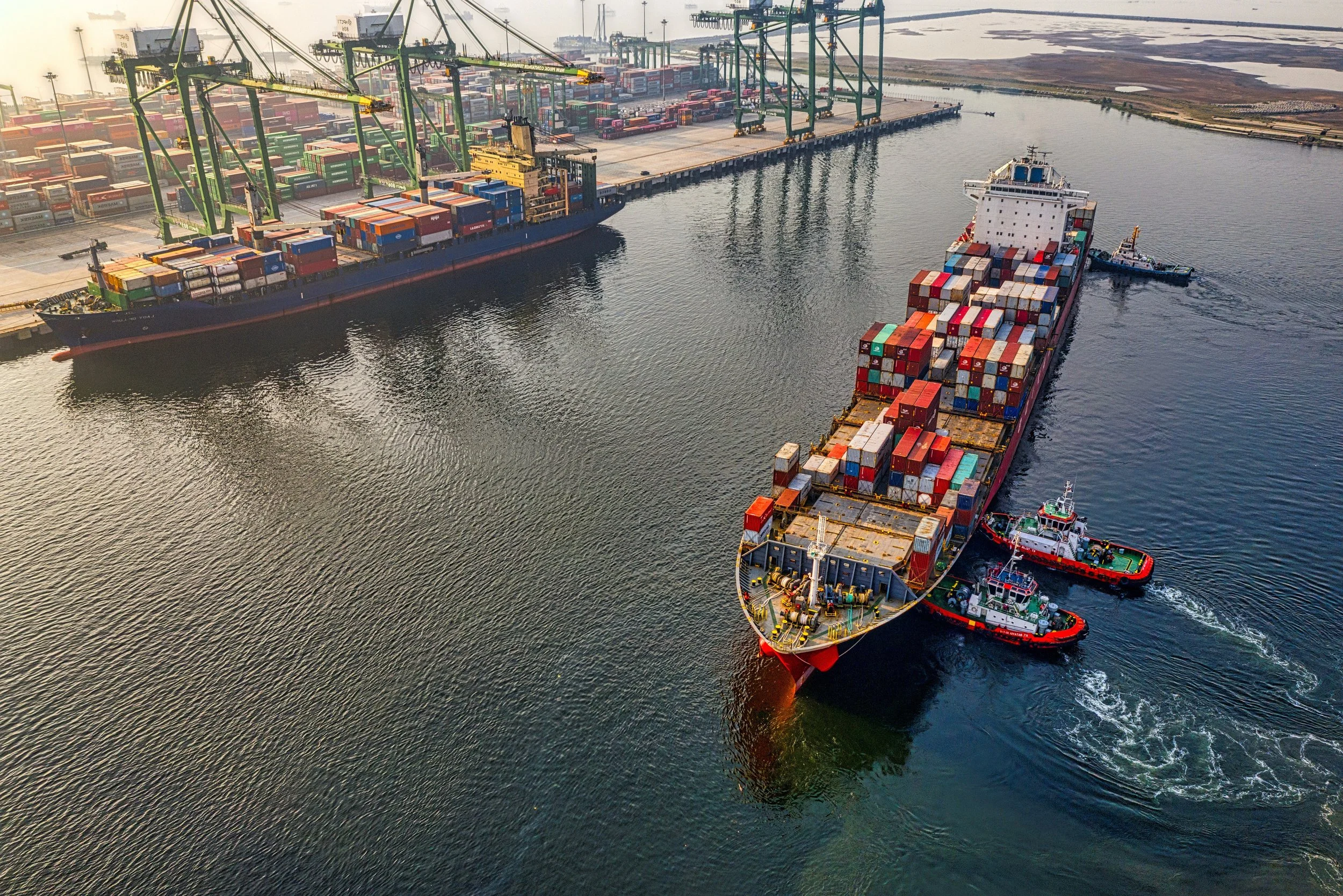Pay Up: New Shipping Emissions Legislation Sets Sail Following European Green Deal
Photo by william william on Unsplash
In a move that follows a decade of talk among EU lawmakers, maritime transport is now included within the EU’s emissions trading scheme. The bottom line? Ship operators, for the first time ever, will now be forced to pay for their carbon emissions.
This decision was welcomed by the European Commission during December last year, as talks took place between the European Parliament and the Council, with a final decision being reached late on 6 December.
Sean Goulding Carroll writes for EURACTIV that, globally, the maritime sector emits 3% of greenhouse gas emissions, and that by 2019, more than 144 million tons of CO2 were attributed to this sector. The deal to see ship operators pay up is therefore a move towards the EU’s target of reducing net greenhouse gas emissions by at least 55% by 2023.
“The updated rules on emissions trading will accelerate the implementation of the polluter pays principle, […] meaning that the industry will have a greater responsibility to pay for its carbon footprint” the Commission said in a statement. “[Furthermore], there will be more economic incentives to reduce emissions to a robust price signal.
German lawmaker Peter Liese, as quoted here, this new law will lead to around 120 million tonnes of carbon savings. Liese added that the deal will not only reduce carbon, but also help to improve the air quality control of coastal cities. “[This deal] will force shipping companies to invest in clean technologies, otherwise they will pay a huge amount of money.” Liese emphasised the importance of such legislation being passed. “The world [must] understand that climate change is urgent. If international institutions don’t solve the problem, Europe has to do it.
How will the pricing work?
This emission deal states the amount of emissions covered will increase over time, with a starting point of 40% in 2025. This will be increased to 70% in 2026, followed by a coverage of 100% by 2027. “[However], these figures are in brackets,” said Liese, stating that the fine print still needed to be completed during final rounds of negotiation.
Who will have to pay up?
Small vessels are off the hook for this one. This new legislation is only applicable to all ships over 5,000 gross tonnes. Ship companies beware: the legislation will be reviewed in coming years to ensure that companies don’t produce 4,999 gross tonnes ships to bypass the law, according to Liese.
Is everyone happy about this deal?
Many lawmakers commended the new emissions legislation being passed, with Germany’s Jutta Paulus (MEP) stating that “climate vandalism on international oceans has come to an end”, according to Euractiv. Her colleague Micheal Bloss also welcomed the deal, but criticised members of state who slowed the legislation from being passed. As for the World Shipping Council, they state that they are ready for the new law, but also called for investments in renewable energy to ultimately find and use alternatives to maritime fuel necessities.
My thoughts? It’s about high time that such a law be passed, especially after lawmakers have been dragging their feet surrounding such a law for many years. However, legislators must also keep their promise of reviewing the law and holding companies accountable to pay these fees. As long as there are rules (whether in support of climate change or not) there will, unfortunately, be those looking to bypass the laws to save money.
What are your thoughts? Should ships pay for emissions?


